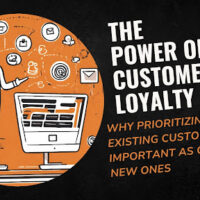Whether marketers like it or not, significant changes are coming to the digital landscape around data privacy and advertising. One way to combat the increasing ineffectiveness of behavioral advertising is contextual advertising.
What Is Contextual Advertising?
It refers to the strategic placement of digital ads on websites where the content pairs well with the ad’s content. So, if you sell home swimming pool chemicals, you would want to place the ad on a website explaining how easy it is to maintain a backyard pool. In recent years, digital advertisers have relied on behavioral targeting on Google’s network.
Behavioral advertising relies on cookies and third-party tracking to show customers products they may like based on their behavior online. With the conscious shift in consumer privacy, browsers such as Chrome and Safari have eliminated third-party cookies, reducing the efficacy of behavioral targeting. Adding a contextual advertising element to your marketing plans will benefit businesses in 2022 and beyond.
What Are The Benefits Of Contextual Advertising?
1. Easier To Implement
Behavioral targeting relies on data, the best being first-party (owned) data. First-party data can be expensive to gather, and the tools necessary to analyze the data are costly. Contextual advertising is a more cost-effective PPC strategy for smaller businesses or start-ups that don’t yet have the data to collect.
2. Not Impacted By Privacy Legislation
In 2018, the California Consumer Privacy Act introduced the regulation of consumer data collection in the United States for California residents. Since the law’s passing, other states have started similar legislation to control data privacy. As previously mentioned, behavioral targeting relies on collecting cookies and targeting ads toward consumers on the sites they visit. However, as third-party cookies are eliminated, and stricter data laws are enacted, behavioral ad targeting will become less effective. Contextual advertising will be more critical in marketers’ PPC strategy and mix.
3. More Control Of Brand Placement
Contextual advertising enables marketers to be more selective in their media placements. Brands won’t have to worry about their ads showing on explicit websites or sites not aligned with the brand’s mission.
4. Relevant Without Being Obnoxious
Contextual ads show where the ad aligns with the content on the site. When users see the ads, they link the advertiser to the content they consume. Behavioral advertising shows ads from brands users previously searched for or are potentially interested in when the brand has no relevance to the site they are on. Consumers are acutely aware of how brands target them on sites, and behavioral ads — not done right — can become obnoxious and creepy. Generally speaking, consumers are more likely to click a semi-relevant ad compared to an ad with no relevance to what they’re reading.
How Should My Business Prepare For This Shift?
Businesses of all sizes should review their digital marketing mix and look into incorporating contextual ads. Not only are they another useful tool in the digital landscape, but these ads may help you reach consumers as privacy regulations evolve. Not sure where to start? The marketing team at Farmboy, a Midwest-based marketing agency, stays on top of the trends in the dynamic digital marketing landscape. If your business needs help with digital marketing, web design, creative, or all the above, contact us today!






Leave a Reply